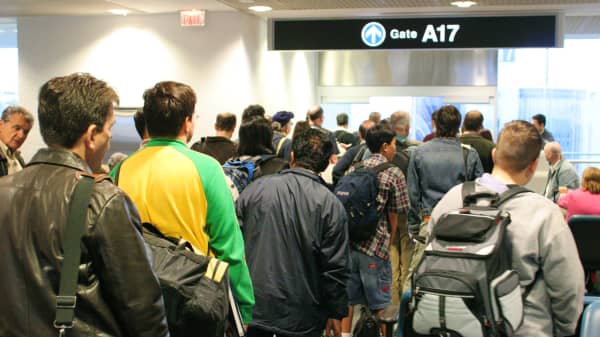Being physically dragged off a plane may be rare, but passengers are being denied boarding against their wishes every day.
United Airlines is under fire after a video surfaced of a passenger being forcibly removed from a United Express flight operated by Republic Airways.
Airlines are well within their rights to deny a passenger the right to board a plane, but they have to ask for volunteers first. If they don't get enough volunteers, the airline uses a computer system to choose passenger to block from the aircraft.
Last year alone, more than 40,000 people were involuntarily denied boarding on 12 major U.S. airlines, according to data from the U.S. Department of Transportation. Those are people who declined to take compensation, but were kicked off anyway.








